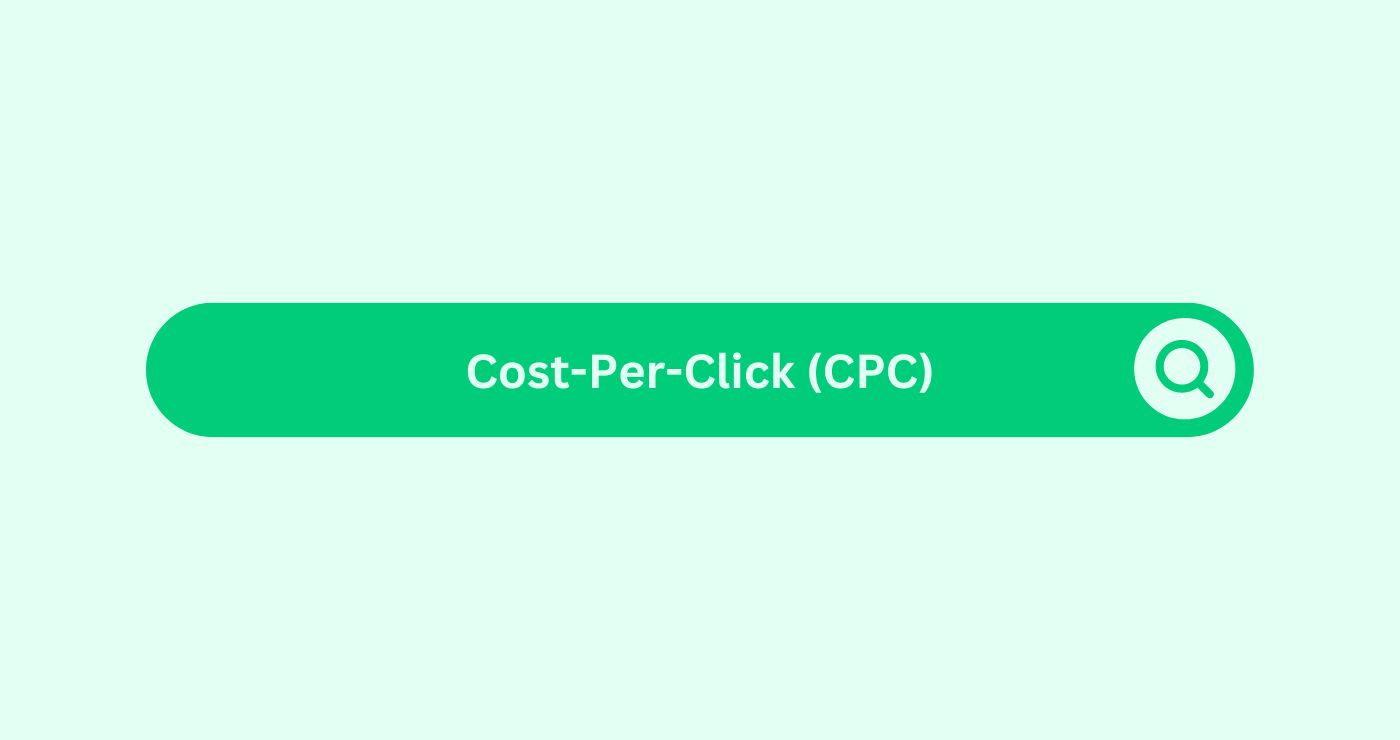Definition
Cost-Per-Click (CPC) is a digital advertising metric that represents the price an advertiser pays each time a user clicks on their ad. It is commonly used in pay-per-click (PPC) advertising models, where advertisers bid on keywordsWhat is the keyword in the context of content marketing? Key... More or placements to display their ads on search engines or other platforms. CPC is a crucial factor in determining the effectiveness and efficiency of advertising campaigns, as it directly impacts the cost of acquiring website trafficDefinition In the context of SEO (Search Engine Optimisation... More or leads.
Example of how you can use Cost-Per-Click (CPC)
Let’s say you’re running a Google Ads campaignDefinition A Campaign in the SEO space refers to a focused a... More for your e-commerce store selling fitness equipment. By monitoring CPC for different keywordsWhat is the keyword in the context of content marketing? Key... More related to your products, you can identify which keywordsWhat is the keyword in the context of content marketing? Key... More are driving the most cost-effective trafficDefinition In the context of SEO (Search Engine Optimisation... More to your website. For instance, if the keyword “treadmill for home use” has a lower CPC and generates a high conversion rateDefinition Conversion Rate in the SEO space refers to the pe... More, you can allocate more budgetDefinition Budget in the SEO space refers to the allocated a... More towards bidding on that keyword to maximize your ROI.
Calculation
Cost-Per-Click (CPC) is calculated using the following formula:
CPC=Total Clicks /Total Cost
Where:
- Total Cost: The total amount spent on advertising within a specific period.
- Total Clicks: The total number of clicks received on the ads during the same period.
Key Takeaways
- CPC represents the actual cost incurred by advertisers for each click on their ads.
- Lower CPC values indicate more efficient use of advertising budgetDefinition Budget in the SEO space refers to the allocated a... More and better campaignDefinition A Campaign in the SEO space refers to a focused a... More performance.
- Factors influencing CPC include bid competition, keyword relevanceDefinition In SEO, relevance refers to the degree to which a... More, ad quality, and targeting options.
- Monitoring CPC allows advertisers to optimize their campaigns by adjusting bids, refining targeting, and improving ad relevanceDefinition In SEO, relevance refers to the degree to which a... More.
- Balancing CPC with other metricsWhat are Metrics in the context of SEO? Metrics in SEO refer... More such as click-through rate (CTR)Definition Click-Through Rate (CTR) refers to the ratio of u... More and conversion rateDefinition Conversion Rate in the SEO space refers to the pe... More is essential for achieving overall campaignDefinition A Campaign in the SEO space refers to a focused a... More objectives and maximizing ROI.
FAQs
What factors influence CPC?
CPC is influenced by factors such as bid competition, keyword relevanceDefinition In SEO, relevance refers to the degree to which a... More, ad quality, targeting settings, and ad positionDefinition Ad Position in the SEO space refers to the placem... More.
How can I reduce CPC?
To reduce CPC, focus on improving ad quality, increasing keyword relevanceDefinition In SEO, relevance refers to the degree to which a... More, refining targeting, optimizing landing pagesDefinition Landing pages are standalone web pages specifical... More, and enhancing the overall user experience.
Is CPC the same as PPC?
No, CPC refers specifically to the cost paid for each click on an ad, while PPC (pay-per-click)Definition PPC (Pay-Per-Click) is a digital advertising mode... More is a broader advertising model where advertisers pay only when their ad is clicked.
Why is CPC important in digital advertising?
CPC is important because it directly impacts the cost-effectiveness of advertising campaigns and influences overall ROI.
How does CPC affect ad position?
Higher CPC bids typically result in better ad positions, as advertisers with higher bids are more likely to win auctions and secure top placements on search engine results pages.
Does CPC vary by industry?
Yes, CPC can vary significantly by industry, depending on factors such as competition, target audienceDefinition The term "Audience" refers to the group of indivi... More, and the nature of products or services being advertised.
What role does Quality Score play in CPC?
Quality ScoreDefinition Quality Score is a metric used in SEO to evaluate... More can impact CPC by influencing ad rankDefinition Ad Rank is a metric used in search engine adverti... More, which in turn affects the cost of clicks and the position of ads on search engine results pages.
Can CPC be fixed or negotiated?
CPC in paid advertising platforms like Google Ads is determined through auctions, where advertisers bid on keywordsWhat is the keyword in the context of content marketing? Key... More, and it can fluctuate based on various factors.
How often should I monitor CPC?
It's advisable to monitor CPC regularly, especially when running active advertising campaigns, to identify trends and make timely adjustments to optimize performance.
Does CPC guarantee conversions?
No, CPC guarantees only the cost of clicks on ads; whether those clicks convert into leads or sales depends on factors such as ad relevanceDefinition In SEO, relevance refers to the degree to which a... More, landing pageWhat is a landing page in the context of SEO? In SEO, a land... Morepage experienceDefinition of Page Experience Page Experience refers to the ... More, and the quality of the offer.




